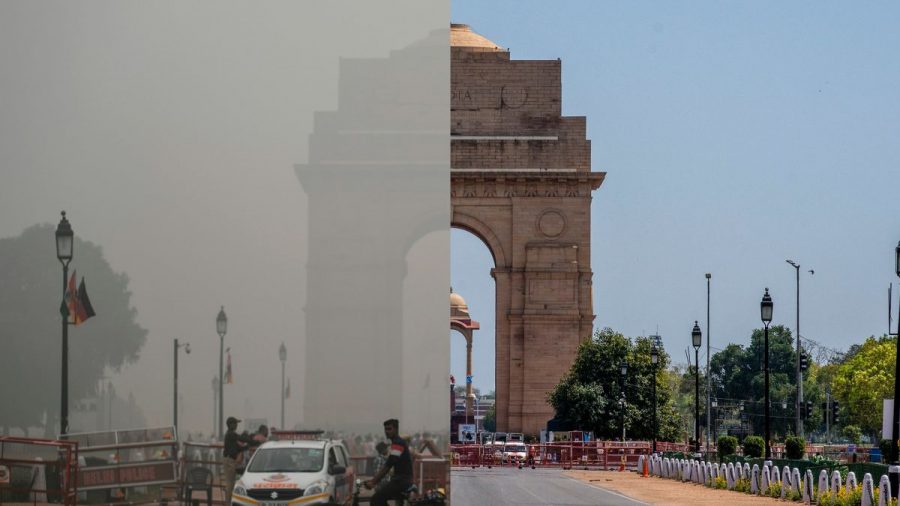Silver Linings: The Coronavirus’ Effect on Climate
April 26, 2020
The Coronavirus has caused global panic as people around the world abandon their day-to-day routines to self-isolate in their homes. For as much hardship as the virus has caused, maybe it is just what Mother Nature needed —COVID-19 is positively impacting the climate, resulting in cleaner air and clearer water. But will it last?
The Coronavirus primarily spreads through sneezing or coughing on others. Public transportation has shut down because the disease is highly contagious, and health officials want to minimize the risk of transmission. The positive effects of limited transportation are visible around the world. For example, the water in the canals of Venice, Italy are typically murky; however, the outbreak and decline of tourism and boat traffic have turned the waterways clear. The canals are the clearest they have been in 60 years, allowing a beautiful view of the sand bed, fish, crabs, and other multicolored plant life.
In addition, travel bans and city shutdowns are causing a significant decline in air pollution, as observed in Delhi, India. The air quality index (a measure of air pollution) is usually 200 on a good day, even though anything above 50 is considered unsafe. Since the lockdown, air quality indices have fallen to below 20, and the Delhi air is clear and the skies are blue for the first time in decades.
In other parts of India, the Himalayan mountain range is visible from a distance. In April 2020, people woke up in Punjab India and saw the Himalayas for the first time in thirty years.
Ms. Jochem, an Upper School Environmental Science teacher, argued that the clearer air in India reveals the truth behind the polluted sky.
“Mobile lobbyists [people who petition the government on behalf of automobiles] had been making this long-standing argument that it wasn’t cars and automobiles that were to blame for the pollution but rather other factors,” Jochem explained. “Now, they have pretty hard science to say that without eleven million cars on the road, we can see a significant difference.”
But what happens when the stay-at-home orders are lifted? Do pollution levels return to where they were before the Coronavirus? Scientists assume that signs say yes.
Jochem explains that “there are some projections that it might actually worsen initially as businesses, factories and construction ramp up and try and make up for lost time… I also think that people will be more reluctant to take public transportation because of the crowding factor… maybe taking their own automobile on the road so they’re not in close contact with people.”
However, Jochem acknowledged that there is a silver lining to this virus.
“Hopefully it will make people think about leading cleaner lifestyles, getting out and walking or riding bicycles. When they understand the way things could be because they have seen it. The hope is really that the government will look at this and say this just seems to make so much more sense for the health of our people. Let’s find a way to try and move toward clean energy,” Jochem urged.
For skeptics who have wondered if climate change is a hoax, maybe this experience has changed their minds.
“I think when this is all said and done, maybe they will be more receptive to listening to activists about how we can change our world and make it a better place,” hopes Ms. Jochem.





Cessa • Apr 26, 2020 at 4:15 pm
Wow – Amazing, insightful, and informative article!